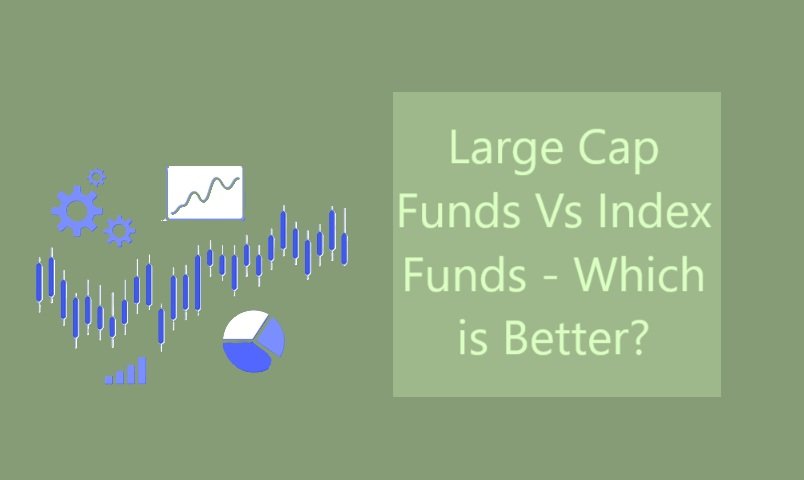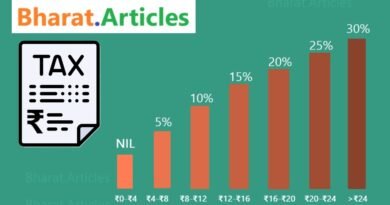
Large Cap Funds Vs Index Funds – Which is Better?
Investors looking to grow their wealth often face a dilemma when deciding between large-cap funds and index funds. Both fund types have their unique features, benefits, and drawbacks, making it crucial to understand them thoroughly before making an investment decision.
What Are Large Cap Funds?
Large-cap funds are mutual funds that primarily invest in large-cap companies, typically the top 100 companies by market capitalization in a given stock market. These companies are well-established, financially stable, and have a proven track record of performance.
Features of Large Cap Funds:
- Active Management: These funds are actively managed by fund managers who aim to outperform the benchmark index.
- Portfolio Composition: Investments are concentrated in blue-chip companies known for stability and consistent returns.
- Risk Level: Large-cap funds are relatively less risky compared to mid-cap or small-cap funds but still carry market risks.
- Returns: Potential for higher returns than index funds due to active management.
Benefits of Large Cap Funds:
- Stability: Large-cap companies are less volatile and offer more predictable growth.
- Expert Management: Fund managers actively research and select stocks to maximize returns.
- Diversification: A broad portfolio across various sectors reduces company-specific risks.
Drawbacks of Large Cap Funds:
- Higher Costs: Actively managed funds typically have higher expense ratios due to management fees.
- Performance Variability: Returns depend on the fund manager’s expertise and market conditions.
Read This: What Is SME IPO? – A Comprehensive Guide
What Are Index Funds?
Index funds are a type of mutual fund or exchange-traded fund (ETF) designed to replicate the performance of a specific market index, such as the Nifty 50 or S&P 500.
Features of Index Funds:
- Passive Management: These funds are passively managed and aim to mirror the index’s performance.
- Portfolio Composition: Investments are made in the same proportion as the underlying index.
- Risk Level: Risk depends on the market index but is generally lower due to diversification.
- Returns: Returns closely follow the performance of the chosen index.
Benefits of Index Funds:
- Low Costs: With no active management, expense ratios are significantly lower.
- Transparency: The fund’s holdings mirror the index, providing clear visibility.
- Consistent Performance: Index funds avoid underperforming the market as they match the index.
Drawbacks of Index Funds:
- Limited Returns: No possibility of outperforming the market as the fund mirrors the index.
- Lack of Flexibility: Index funds cannot adapt to market trends or opportunities.
- Tracking Error: Small deviations between the fund’s performance and the index can occur.
Key Differences Between Large Cap Funds and Index Funds
| Feature | Large Cap Funds | Index Funds |
|---|---|---|
| Management Style | Actively managed | Passively managed |
| Objective | Outperform the market | Match the market performance |
| Cost | Higher expense ratios | Lower expense ratios |
| Risk | Moderate | Low to moderate |
| Flexibility | High, as fund managers can adjust | None, as the fund mirrors the index |
| Potential for Outperformance | Yes | No |
Factors to Consider When Choosing Between Large Cap Funds and Index Funds
- Investment Goals:
- If you aim to achieve market-beating returns and are willing to pay higher fees, large-cap funds may be suitable.
- If you prefer steady, predictable returns with minimal costs, index funds are a better option.
- Risk Appetite:
- Large-cap funds carry slightly more risk due to active management and potential market volatility.
- Index funds are less risky as they follow a diversified index.
- Costs:
- Large-cap funds have higher expense ratios, which can eat into returns over the long term.
- Index funds are cost-effective, making them ideal for long-term investors.
- Market Knowledge:
- If you rely on professional expertise to select stocks, large-cap funds are a good choice.
- If you believe in efficient market theory, which states that markets are hard to beat, index funds align with this philosophy.
- Time Horizon:
- For long-term goals, the compounding effect of lower costs in index funds can be advantageous.
- For medium-term goals, large-cap funds may offer the potential for higher returns.
Which is Better: Large Cap Funds or Index Funds?
The answer depends on your financial objectives, risk tolerance, and investment strategy. Here are some scenarios:
- Choose Large Cap Funds If:
- You seek market-beating returns and are comfortable with slightly higher costs.
- You trust fund managers to navigate market complexities and deliver superior performance.
- Choose Index Funds If:
- You prioritize low costs and consistent returns that align with the market.
- You prefer a hands-off approach to investing.
Conclusion
Both large-cap funds and index funds offer distinct advantages, and the right choice depends on your individual preferences and financial goals. Large-cap funds provide an opportunity for active management and potentially higher returns, while index funds offer simplicity, lower costs, and market-matching performance.
Consider consulting with a financial advisor to evaluate your investment needs and choose the fund type that aligns best with your objectives. Whether you choose large-cap funds or index funds, staying disciplined and committed to your investment plan will ultimately drive success in your wealth-building journey.
Disclaimer: This article is for informational purposes only and does not constitute financial advice. Investing involves risk. Consult with a qualified professional before making any investment decisions.






